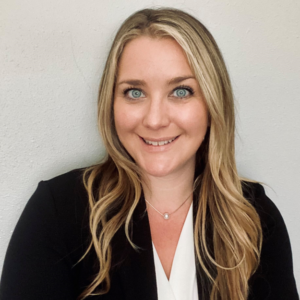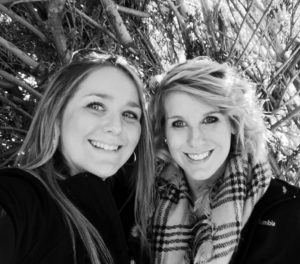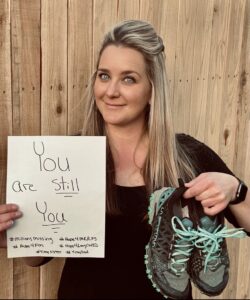A New Chapter at BHC: Rooted in Experience, Leading with Purpose
 As millions grapple with the long-term effects of post-infectious illness, the Bateman Horne Center (BHC) is entering a new era—one defined by lived experience, scientific urgency, and a commitment to changing the future of care. We’re proud to announce the appointment of Tahlia Ruschioni as Executive Director, a healthcare leader whose journey and expertise are deeply aligned with BHC’s mission.
As millions grapple with the long-term effects of post-infectious illness, the Bateman Horne Center (BHC) is entering a new era—one defined by lived experience, scientific urgency, and a commitment to changing the future of care. We’re proud to announce the appointment of Tahlia Ruschioni as Executive Director, a healthcare leader whose journey and expertise are deeply aligned with BHC’s mission.
A Personal Commitment, A Professional Calling
Tahlia’s path to leadership has been shaped not only by two decades of experience in public health, systems improvement, and medical education—but also by personal encounters with the very challenges BHC seeks to address. Her father’s prolonged struggle for a diagnosis, and her sister’s life-altering battle with ME/CFS following a viral infection, grounded her early commitment to understanding complex chronic conditions.
That commitment deepened in 2020 when Tahlia developed ME/CFS and dysautonomia following COVID-19.
“It’s made me better at my job,” she says. “I can translate what patients describe into language clinicians understand. I’m not climbing mountains anymore, but I’m using that energy to ensure others don’t get lost in the system.”
Building on Legacy, Scaling for Impact
 Tahlia steps into the Executive Director role following the retirement of Rob Ence and now works in close partnership with BHC founder and Chief Medical Officer Dr. Lucinda Bateman, who will retire from patient care at the end of 2025.
Tahlia steps into the Executive Director role following the retirement of Rob Ence and now works in close partnership with BHC founder and Chief Medical Officer Dr. Lucinda Bateman, who will retire from patient care at the end of 2025.
“To carry forward Dr. Bateman’s legacy leaves me speechless,” Tahlia says. “But like her, I have someone counting on me. My sister—and now, millions more.”
Tahlia’s leadership has already helped BHC scale its reach and deepen its impact. She led the launch of several cornerstone initiatives:
- The Clinical Care Guide for ME/CFS, Long COVID, and Infection-Associated Chronic Conditions, reaching more than 40,000 readers in its first month
- The expansion of the Medical Education Resource Center (MERC), which has trained over 15,000 clinicians across 46 states and 90 countries
- The ME/CFS Crash Survival Guide, viewed over 300,000 times by patients and caregivers worldwide
These tools have become vital lifelines, informing care, guiding providers, and validating the experiences of patients worldwide.
A Vision for the Next Generation of Care
Tahlia’s vision for BHC is both ambitious and actionable: to establish the center as a national hub for clinical training, research innovation, and medical education in ME/CFS and Long COVID.
This work is already underway:
- Launching clinical training programs, including rotations, observerships, and fellowships with academic medical centers
- Expanding provider education through continued Grand Rounds, Project ECHO, and self-paced, accredited learning modules
- Driving investigator-led clinical research and partnerships focused on patient-centered outcomes, with studies conducted and translated from within BHC
- Publishing case studies and clinical insights that shape care guidelines and elevate scientific understanding
- Building national collaborations to define standards of care and embed them into medical curricula
“Access to care starts with education,” Tahlia says. “We need to give providers permission to say, ‘I may not know how to manage this yet—but I’m willing to learn.’ Then we give them the tools, the community, and the clinical model to do just that.”
Equity, Access, and a Patient-Led Future
Central to Tahlia’s leadership is a commitment to inclusion—especially for communities too often excluded from care and research.
“Pediatric patients, underserved communities, and those living with severe ME/CFS aren’t exceptions—they’re central to how we move forward,” she says. “Their lived experiences help us design care that’s not only informed, but truly responsive. Everything we build should be shaped with them, not just for them.”
This focus on co-creation is already reflected in BHC’s education tools, clinical practices, and patient resources—and will remain foundational in all that follows.
Not Someday—Now
 Tahlia credits BHC’s progress to the strength of its community: patients who share their stories, families who advocate tirelessly, providers who stay curious, and donors and partners who help turn vision into practice.
Tahlia credits BHC’s progress to the strength of its community: patients who share their stories, families who advocate tirelessly, providers who stay curious, and donors and partners who help turn vision into practice.
“Every time I attend a support group or read a message from a patient or carepartner, I’m reminded why this matters so much,” she says. “I’m here with them and for them. All of them.”
“With continued support and shared commitment, BHC is poised to scale access to expert-informed care—not someday, but now.”

 Lucinda Bateman, MD, is a renowned clinician, researcher, and educator. Her Johns Hopkins University Medical School training instilled an approach to care that she has employed throughout her career - the patient comes first and the unknown or unexplained does not equate to a lack of proper and compassionate care. Since starting her own practice in 2000, she has served on six boards or committees, been the principal investigator for 45 studies, authored/coauthored 40 journal articles, served as adjunct instructor and adjunct assistant professor in the University of Utah Departments of Preventative Medicine, Internal Medicine, and Anesthesiology, and lectured around the world.
Lucinda Bateman, MD, is a renowned clinician, researcher, and educator. Her Johns Hopkins University Medical School training instilled an approach to care that she has employed throughout her career - the patient comes first and the unknown or unexplained does not equate to a lack of proper and compassionate care. Since starting her own practice in 2000, she has served on six boards or committees, been the principal investigator for 45 studies, authored/coauthored 40 journal articles, served as adjunct instructor and adjunct assistant professor in the University of Utah Departments of Preventative Medicine, Internal Medicine, and Anesthesiology, and lectured around the world.